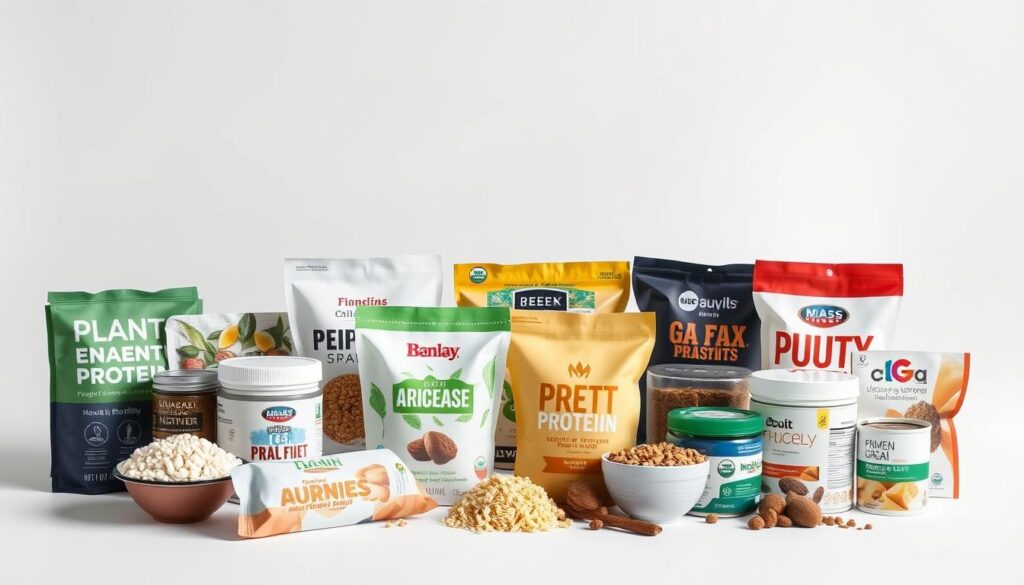When I first heard about sustainable diets I was a bit skeptical. After all wasn’t eating just about satisfying hunger and tasting delicious food?
But then I started realizing how my eating choices affected not just my health but the entire planet. Reading up on how plant protein and lab grown foods are revolutionizing our approach to food was an eye opener.
These innovative dietary choices promise a future where our meals are both nutritious and kind to the environment.
In today’s world, where the urgency to address climate change grows by the day sustainable diets have emerged as a critical solution. Endorsed by numerous studies these diets emphasize the importance of eco friendly food choices.
Plant proteins such as lentils beans and quinoa are recognized by the USDA as nutritious and sustainable alternatives to animal protein.
Additionally companies like Memphis Meats and Mosa Meat are making strides in developing lab grown foods offering potential solutions for those passionate about environmentally-friendly diets.
Key Takeaways
- Sustainable diets emphasize eco friendly food choices that positively impact our planet.
- Plant protein options like lentils beans and quinoa are nutritious and sustainable according to the USDA.
- Lab grown foods are being developed by innovative companies like Memphis Meats and Mosa Meat.
- Choosing sustainable diets supports both personal health and environmental initiatives.
- Embracing these food choices can lead to a healthier, more sustainable future.
Understanding Sustainable Diets
Sustainable diets are pivotal in the realm of sustainable nutrition offering a pathway to more eco friendly food consumption. They are designed to achieve present and future food needs without imposing considerable harm on the environment.
Definition and Importance
The United Nations’ Food and Agriculture Organization FAO defines a sustainable diet as one that minimizes environmental impact is nutritious, and remains accessible to all consumers.
Sustainable diets play a crucial role in ensuring eco friendly nutrition supporting current food needs while preserving resources for future generations. As highlighted by research in the journal Science this approach is essential for maintaining balanced nourishment without compromising the well being of future societies.
Environmental Impact
The environmental impact of our dietary choices is substantial. Research from the University of Oxford reveals that plant based eating patterns typically exhibit a lower carbon footprint compared to diets rich in animal products.
Embracing sustainable food choices not only promotes personal health but also significantly mitigates environmental degradation making it a small yet powerful step towards broader ecological conservation.
The Role of Plant Protein in Sustainable Nutrition
Incorporating plant protein into our diets is a pivotal step toward achieving sustainable nutrition. With increased awareness of environmental impact and health benefits many are turning to vegan options and alternative proteins as a more sustainable choice.
Benefits of Plant Based Proteins
Plant-based proteins offer numerous health benefits such as improved heart health and a reduced risk of chronic diseases.
The American Heart Association highlights that consuming plant protein can lower cholesterol levels and blood pressure contributing to overall heart health. Additionally plant proteins are often lower in saturated fats which helps in maintaining a healthier weight.
Common Sources of Plant Protein
A wide variety of foods serve as excellent sources of plant protein. Popular options include soy products like tofu and tempeh which are versatile and rich in protein.
Nuts and seeds, such as almonds, chia seeds, and flaxseeds, also provide substantial amounts of protein along with healthy fats. Whole grains like quinoa and brown rice are other fantastic sources, making it easier for those on vegan options diets to meet their protein requirements.
| Source | Protein Content | Additional Benefits |
|---|---|---|
| Tofu | 10g per 100g | Rich in iron and calcium |
| Tempeh | 21g per 100g | Contains probiotics |
| Almonds | 6g per 28g | High in vitamin E |
| Chia Seeds | 4.7g per 28g | High in omega-3 fatty acids |
| Quinoa | 8g per cup | Contains all nine essential amino acids |
Introduction to Lab Grown Foods
Lab grown foods represent a groundbreaking shift in how we approach nutrition and sustainable diets. Rather than relying on traditional farming practices, these innovative foods are cultivated in lab settings through advanced methodologies.
What are Lab Grown Foods?
Lab grown foods, also known as cultured or cell based foods, are produced from cell cultures instead of conventional agricultural methods.
As the Good Food Institute explains cells are extracted from animals and cultivated in controlled environments to grow tissue that mimics meat. This process aims to provide a sustainable alternative to traditional meat production which can significantly reduce the environmental impact associated with livestock farming.
Technological Advances in Lab Grown Foods
Thanks to technological advances the scalability and cost-effectiveness of lab grown foods have seen substantial improvements. Companies like JUST Inc. are pioneering in the cultured meat sector working tirelessly to make these products commercially viable.
These advances not only help in producing lab grown foods that are more affordable but also enhance their nutritional profile making them a key component of sustainable diets.
Plant Protein and Lab Grown Foods Sustainable Diets for Dieters
Incorporating both plant protein and lab grown foods can offer a comprehensive solution for those pursuing sustainable diets for dieters. This combination not only supports healthy eating but also aligns with eco friendly nutrition principles.
Combining Plant Proteins and Lab Grown Foods
By blending plant proteins with lab grown foods, diet enthusiasts can enjoy a balanced diet that is rich in essential nutrients. According to experts at Harvard Health Publishing this combination can aid in effective weight management while promoting overall health.
Plant proteins, derived from sources like lentils, chickpeas, and quinoa offer a high-protein low-fat option. Lab grown foods, created through advanced technology, provide a sustainable alternative to traditional animal products.

Health Benefits for Dieters
Adopting a diet that includes both plant proteins and lab grown foods can result in numerous health benefits for dieters. Studies published in the American Journal of Clinical Nutrition’ indicate potential advantages such as weight loss improved metabolism and better digestive health.
This dual approach supports healthy eating by offering diverse food sources that cater to various dietary needs. Further it promotes eco friendly nutrition by reducing the environmental footprint associated with traditional food production methods.
Overall combining plant proteins and lab grown foods provides a robust foundation for sustainable diets for dieters paving the way for a healthier and more environmentally-conscious lifestyle.
Benefits of Sustainable Diets
Adopting sustainable eating habits brings numerous health advantages and environmental benefits. By focusing on diets that align with the principles of sustainability individuals not only improve their own well being but also contribute significantly to the planet’s health.
Health Advantages
Sustainable diets primarily rich in plant-based foods and lab grown alternatives have been shown to reduce the risk of obesity type 2 diabetes, and certain cancers. These diets are generally lower in saturated fats and higher in essential nutrients lending themselves to a healthier lifestyle.
Moreover sustainable eating often promotes a more balanced and diverse intake of vitamins and minerals resulting in overall improved health.
Environmental Benefits
From an environmental perspective, sustainable diets are incredibly beneficial. They typically require fewer natural resources reduce greenhouse gas emissions and promote biodiversity.
Sustainable eating supports agricultural practices that conserve water and ensure the longevity of ecosystems. By minimizing the environmental footprint sustainable diets play a crucial role in protecting our planet for future generations.
Challenges and Solutions in Adopting Sustainable Diets
Incorporating sustainable diets into everyday life presents numerous hurdles, yet addressing these obstacles can yield significant environmental and health benefits. Acknowledging these challenges is the first step towards finding effective solutions for broader adoption.
Common Challenges
The journey towards adopting sustainable diets is fraught with common challenges. Accessibility remains a significant barrier, with many individuals lacking access to affordable and diverse plant-based or lab grown options.
Cultural preferences also play a crucial role as traditional dietary habits can influence choices, making it harder to shift towards more sustainable alternatives. Additionally there is often a lack of awareness about the benefits of sustainable eating, which hinders widespread adoption.
Practical Solutions
Addressing these challenges requires a multi faceted approach. Policy support is crucial to ensure that sustainable food options are both available and affordable. Governments can implement subsidies for sustainable food production and distribution promoting broader availability.
Educational campaigns can increase awareness about the benefits of sustainable diets nudging individuals towards more environmentally friendly food choices.
Moreover developing more sustainable products that appeal to diverse cultural preferences can make the transition smoother for many. These practical solutions collectively help overcome the environmental challenges associated with food production and consumption promoting a healthier planet.

Plant Based Diets vs. Lab Grown Foods
As the movement towards more sustainable eating gains traction, consumers are frequently faced with a decision: plant based diets or lab grown foods? Understanding the differences between these alternative proteins is essential to making informed dietary choices.
Both plant based diets and lab grown foods showcase unique advantages. From a nutritional perspective plant-based diets are rich in fiber, vitamins, and minerals.
Common sources like lentils chickpeas, and quinoa provide comprehensive health benefits. On the other hand lab grown foods aim to replicate the taste and texture of traditional meat while minimizing environmental impact.
Innovations in biotechnology have made it possible to produce meat alternatives without the ethical and ecological concerns associated with livestock farming.
Various studies, including one from the University of California Davis highlight the methods of production and nutrient profiles of these dietary choices.
Plant-based diets rely on agriculture and natural cultivation, whereas lab grown foods are produced through cell culture technology. This technological advancement contributes to a significant reduction in greenhouse gas emissions and environmental footprint.
While both options strive to create sustainable eating habits, the Institute for the Future emphasizes the unique benefits and challenges each presents. Consumer acceptance and accessibility remain crucial factors in the widespread adoption of these alternative proteins.
| Comparison Criteria | Plant-Based Diets | Lab Grown Foods |
|---|---|---|
| Nutritional Content | High in fiber, vitamins, and minerals | Replicates meat nutrients but may require fortification |
| Production Methods | Agriculture and natural cultivation | Cell culture technology |
| Environmental Impact | Reduction in resource use vs. animal farming | Lower greenhouse gas emissions |
| Consumer Acceptance | Widely accepted and available | Increasingly accepted but limited in availability |
The plant-based diets and lab grown foods comparison yields notable insights into how both paradigms can contribute to a more sustainable future. As technology advances and awareness grows, integrating these alternative proteins into everyday diets may pave the way for healthier people and a healthier planet.
Popular Plant Protein Products
In the quest for a healthier lifestyle and sustainable food choices consumers are increasingly turning to plant based proteins.
These alternatives not only cater to dietary needs but also offer environmentally friendly options. Whether you’re a dedicated vegan or simply exploring new nutritional avenues, understanding the top plant protein brands and how to choose the best products can make a significant difference.

Top Plant Protein Brands
The market is brimming with diverse plant-based protein products, with some brands standing out due to their innovation and commitment to quality. Notable among the top plant protein brands are:
- Beyond Meat: Known for its meat alternatives that closely mimic the texture and taste of real meat.
- Impossible Foods: A pioneer in creating plant-based products that satisfy traditional meat lovers.
- Garden of Life: Offers a variety of protein supplements, emphasizing organic ingredients and whole food nutrition.
How to Choose the Best Plant Protein
When it comes to selecting the best plant protein several factors should be taken into account. According to expert recommendations, consumers should look for:
- Organic Certification: Ensure the product is certified organic to avoid synthetic pesticides and chemicals.
- Minimal Additives: Choose products with minimal additives and preservatives for a more natural protein source.
- Complete Amino Acid Profile: Opt for proteins that provide a complete amino acid profile to support overall health and nutrition.
Below is a comparative look at some leading plant protein options:
| Brand | Product Type | Unique Features |
|---|---|---|
| Beyond Meat | Meat Alternatives | Meat-like taste and texture |
| Impossible Foods | Meat Alternatives | Innovative use of heme for flavor |
| Garden of Life | Protein Supplements | Organic, whole food nutrition |
Recipes for a Sustainable Diet
Exploring exciting and diverse sustainable diet recipes is an excellent way to contribute to environmental conservation while enjoying delicious, nutritious meals. Plant protein recipes and lab grown food cooking are paving the way for more eco-friendly cuisines.
Plant Protein Recipes
Incorporating plant based proteins is a cornerstone of sustainable diet recipes. Books like The Plant Protein Revolution Cookbook by Robin Robertson offer a variety of plant protein recipes featuring beans lentils and tofu as main ingredients.
- Black Bean Burgers: A flavorful mix of black beans, oats, and spices.
- Quinoa Salad: A protein rich salad with quinoa chickpeas, and fresh vegetables.
- Tofu Stir-Fry: A quick and easy dish with tofu, bell peppers, and broccoli.
Lab Grown Food Recipes
Lab grown food cooking is a new frontier in sustainable diet recipes. While still experimental, this innovation has the potential to offer versatile and ethical culinary options.
Future cookbooks may showcase lab-grown food recipes, emphasizing the ethical and environmental benefits. Food industry experts believe these recipes will focus on the versatility of cultured meat, offering numerous delicious and sustainable meal options.
| Recipe Name | Main Ingredient | Key Benefits |
|---|---|---|
| Lab-Grown Chicken Nuggets | Lab-Grown Chicken | Ethical, High in Protein |
| Cell-Cultured Beef Tacos | Lab-Grown Beef | Reduced Environmental Impact |
| Lab-Created Fish Fillets | Lab-Grown Fish | Eco-Friendly, Omega-3 Rich |
Conclusion
As the world increasingly becomes more aware of the environmental and health impacts of our food choices, sustainable diets shine as a beacon of hope.
By integrating plant protein and lab grown foods into our daily meals we can achieve a balanced approach to healthy eating that supports both personal well being and planetary health. The journey toward this shift promises numerous benefits, from reducing our carbon footprint to enjoying a variety of nutritious and innovative food options.
The future of sustainable diets lies in the progressive development of plant protein products and lab-grown foods. These advancements along with effective consumer education will be pivotal in driving widespread adoption.
The EAT Lancet Commission emphasizes that these forward thinking dietary choices are essential not just for individual health but for the sustainability of our planet.
Ultimately, the adoption of sustainable diets rich in plant protein and lab-grown foods represents a compelling step toward a healthier and more environmentally friendly way of living. As we embrace these options, we contribute to a significant positive impact, ensuring a better future for generations to come.
FAQ
What is the importance of sustainable diets?
Sustainable diets are crucial as they meet current food needs without compromising the future generations’ ability to meet theirs. They have a lower environmental impact and promote health, as noted by ‘Science’ journal and the United Nations’ FAO.
How do plant based proteins contribute to sustainable nutrition?
Plant-based proteins such as lentils, beans, and quinoa offer numerous health benefits including improved heart health and a lowered risk of chronic diseases. They’re also environmentally friendly as they have a smaller carbon footprint compared to animal protein according to the American Heart Association and the USDA.
What are lab grown foods?
Lab-grown foods are products cultivated from cell cultures rather than traditional farming methods. Companies like Memphis Meats and JUST Inc. are pioneering this technology aiming to provide environmentally conscious consumers with sustainable food options, as explained by the Good Food Institute.
What are the health benefits of combining plant proteins with lab grown foods for dieters?
Combining these proteins can result in a balanced, nutrient-rich diet that aids in weight management, improves metabolism, and enhances digestive health. Harvard Health Publishing suggests it’s an excellent approach for those focused on healthy eating and sustainable nutrition.
How do sustainable diets benefit the environment?
Sustainable diets help reduce greenhouse gas emissions, conserve water, and promote biodiversity, according to the Environmental Working Group. They also contribute to a lower carbon footprint, as evidenced by a study from the University of Oxford.
What are common challenges in adopting sustainable diets and their solutions?
Challenges include accessibility, cultural preferences, and a lack of awareness. Practical solutions involve policy support, educational campaigns, and developing more sustainable products. The United Nations sustainable development goals and the Food and Agriculture Organization provide detailed strategies to address these challenges.
How do plant based diets compare to lab grown foods?
Both options have lower environmental footprints than traditional meat. Plant-based diets and lab-grown foods differ in nutritional content, production methods, and consumer acceptance. Noted by the University of California, Davis and the Institute for the Future, each has unique advantages and considerations for sustainable diets.
What are some popular plant protein products?
Popular plant protein brands include Beyond Meat, Impossible Foods, and Garden of Life. These brands offer a variety of products such as meat alternatives and protein supplements. Consumer Reports recommends choosing products with organic certification, minimal additives, and a complete amino acid profile.
Can you suggest some recipes for a sustainable diet?
Plant protein recipes can include ingredients like beans, lentils, and tofu, as featured in cookbooks like The Plant Protein Revolution Cookbook by Robin Robertson. Although labgrown food recipes are still experimental future cookbooks may explore the versatility and ethical aspects of cultured meat, according to food industry experts.





